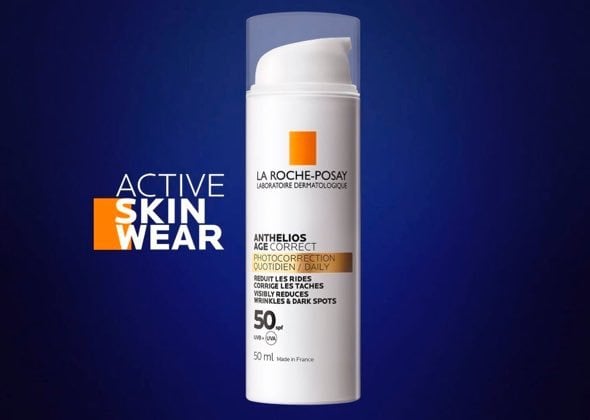Try our free AI Powered Acne Skin Analysis.
This is La roche posay
This is Life-changing dermatology
When we look at skin, we see people, LaRoche-Posay logo with a woman with acne in the background
We see a second woman with acne looking at us
For every time someone told you to wash your face,
We see a third woman with skin allergies suffering and trying to reduce skin pain with ice
for every second your skin was on fire,
We see a fourth woman alone in a party,
For every person,
We see a man alone in stairs showing anxiety,
Who acted like you were contagious,
We see a fifth woman with eczema crying in her bed,
For every sleepless night,
We see a sixth woman in a swimsuit with scars,
For every scar,
We see a second man showing anxiety signs,
For every breakout,
We see a proud seventh woman making selfie,
For every refusal to breakdown,
We see the fourth woman enjoying the party she was in,
For every time you declared you are more than this,
Sequences of the third, the fifth women, the second man, the sixth and the second women focus on their smiling faces with shots on varying angles of view.
For every person who won’t let their skin be overlooked,
Sequence of the first woman focus on her smiling face
This fight is for you.
La Roche-Posay
A better life for all skin is possible.
We see La Roche-Posay products
Hyalu B5 serum, Cicaplast Baume B5, Effaclar Duo +, Lipikar Baume AP+M, Toleriane Ultra Crème, Antherlios 50+SPF Invisible Fluid Ultra Protection
La RochePosa, N°1 Dermatologist recommended skincare brand worldwide
La Roche-Posay
Life-Changing Dermatology

ANTHELIOS UVMUNE 400 SPF50+
The Iconic Anthelios UVMune 400 is a life-changing sun protection with MEXORYL400,
the most efficient UV filter against ULTRA LONG UVA.
Anthelios UVMune400 provides the ultimate protection against UVB, UVA, ULTRA LONG UVA. With
a texture that is a non-sticky, non-greasy, and doesn’t leave white marks. Suitable for
all skin types, even the most sensitive.
DISCOVER
OUR LIFE CHANGERS
OUR SAFETY
COMMITMENTS
Safety standards beyond international cosmetics regulations.

100% PRODUCTS
ALLERGY TESTED
If we detect a single case, we go back to the labs and reformulate

JUST THE ESSENTIAL,
AT THE RIGHT ACTIVE DOSE

TESTED
ON VERY SENSITIVE SKIN

FORMULA PROTECTION
OVER TIME







